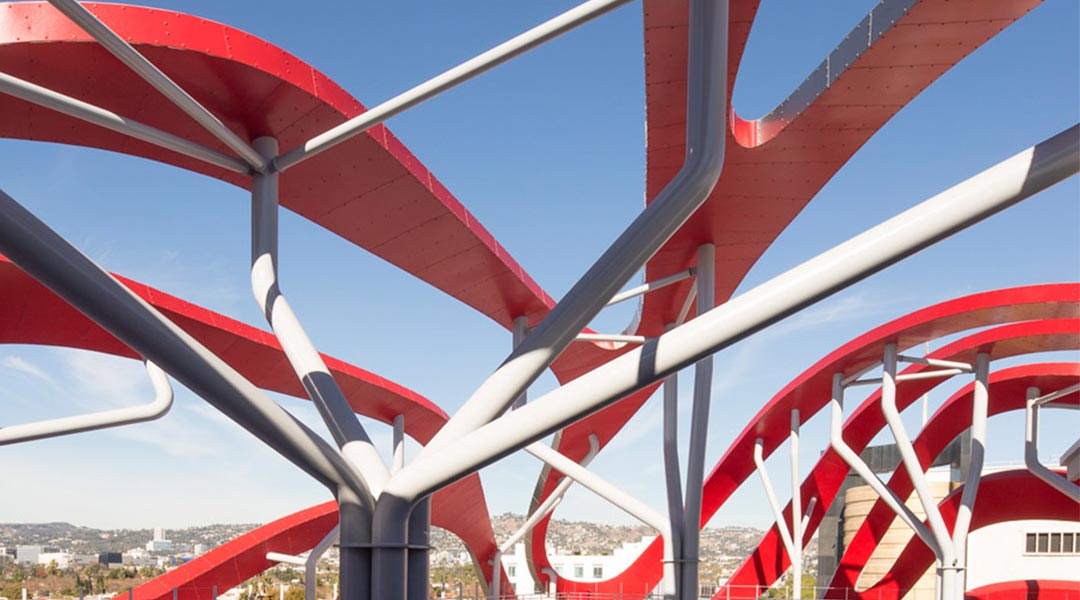
With its unique exterior stainless ribbon cladding, Peterson Automotive Museum reflects how the city progressed in terms of technology and design.
Modernist Architecture was made evident in Kohn Perderson Fox design of the Petersen Museum. One of the main manifestations of technological advancement and modernism is the manufacturing of automobiles. It is only appropriate that the structure to showcase these remarkable vehicles, reflect how the city’s progress in terms of technology and design, as well the culture of Los Angeles that is highly influenced by the automotive industry. As such, the exteriors of Petersen give a futuristic ambiance full of life and motion. It also resembles an abstract image of flowing ribbons made of 100 tons of 14-gauge type 304 steel in 308 sections, 25 supports and 140,000 custom stainless-steel screws.
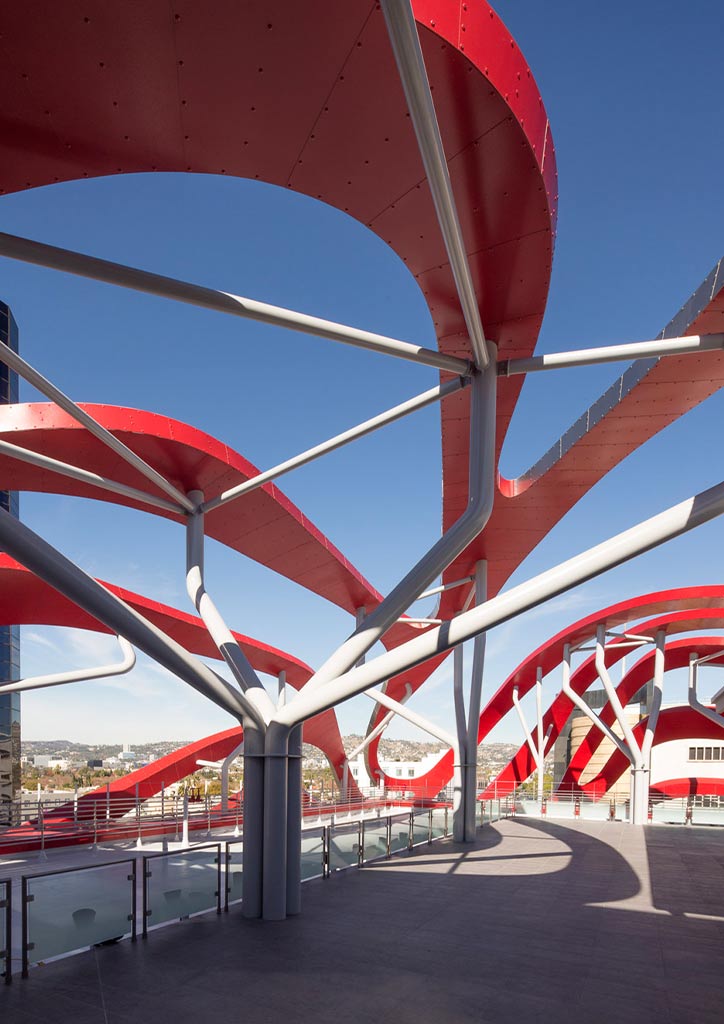
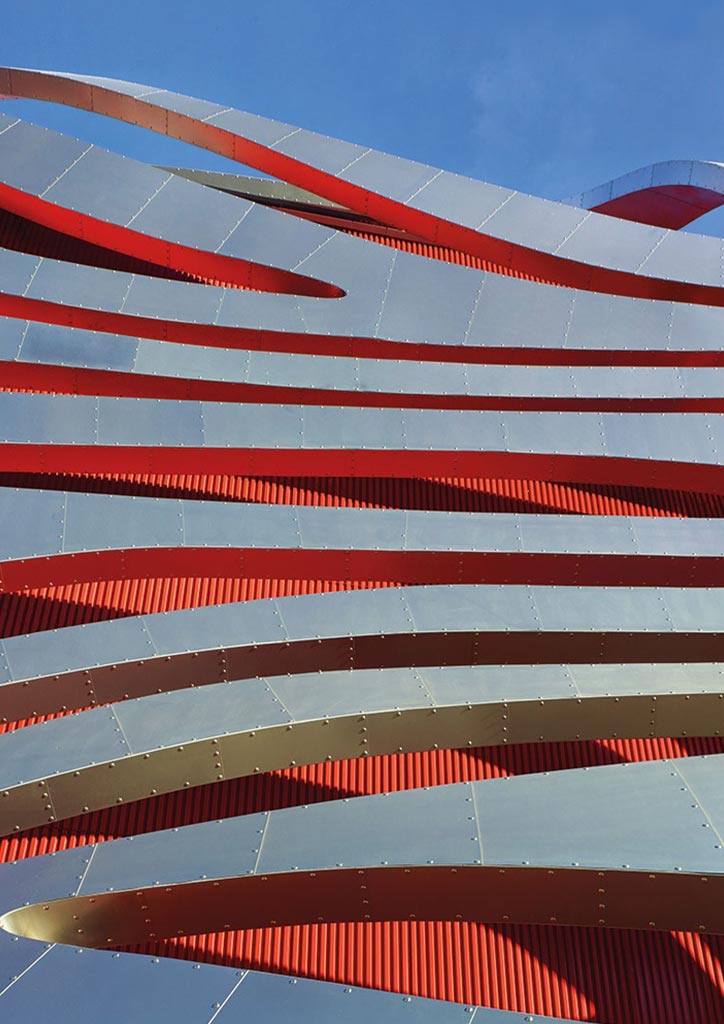
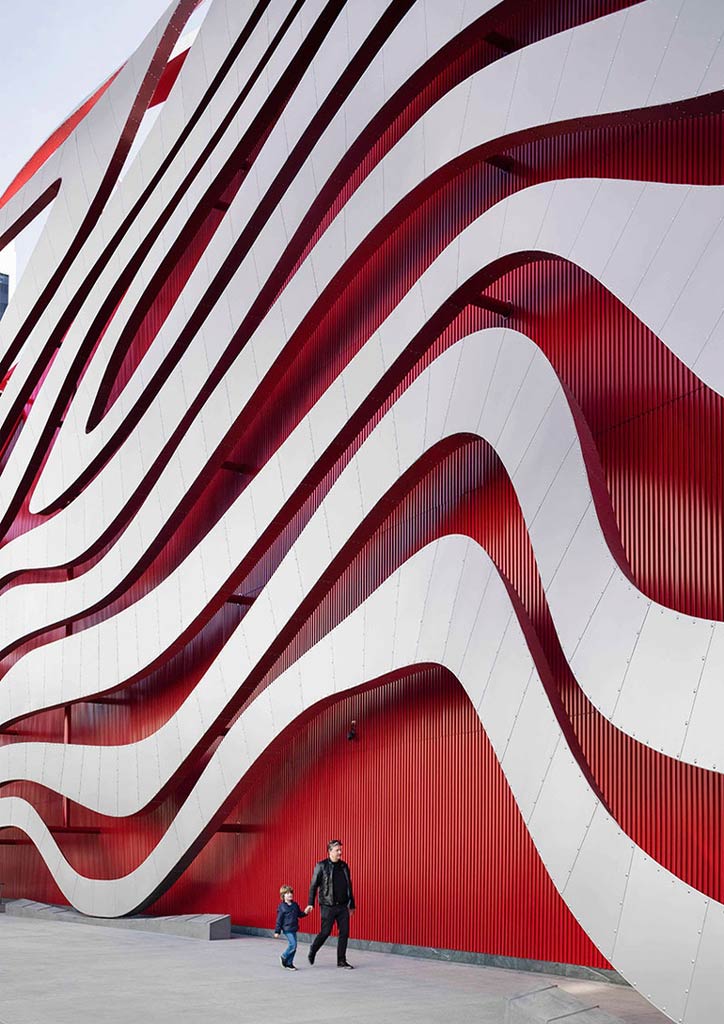
Petersen is situated along Wilshire blvd along the Miracle Mile, the neighborhood of museums in downtown LA. Founded in 1994 by Robert Petersen and his wife, it is owned and operated by the Petersen Automotive Museum. From its original location at natural history museum of LA county in 1962, it has found its new home at a department store in its current location. Petersen intentionally selected a large widowless site that will prevent the artifacts from being exposed to direct sunlight.
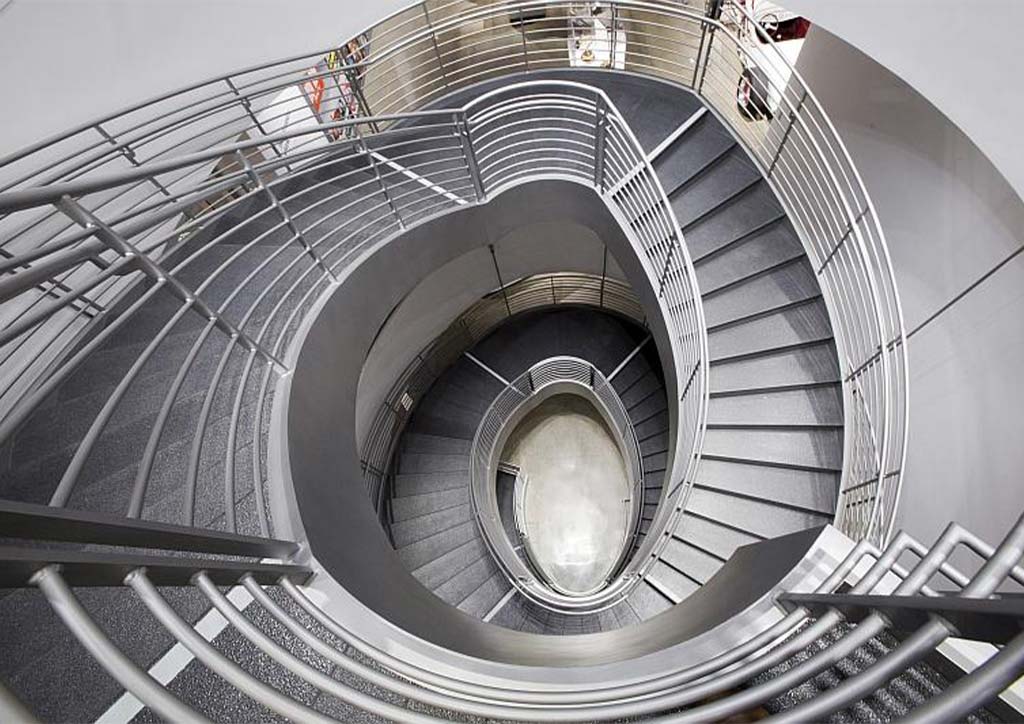
Aside from the impressive exteriors of the structure, one of the main design highlights of the Petersen Museum is this stainless-steel made spiral staircase which in itself looks like an artwork when observed from different angles.
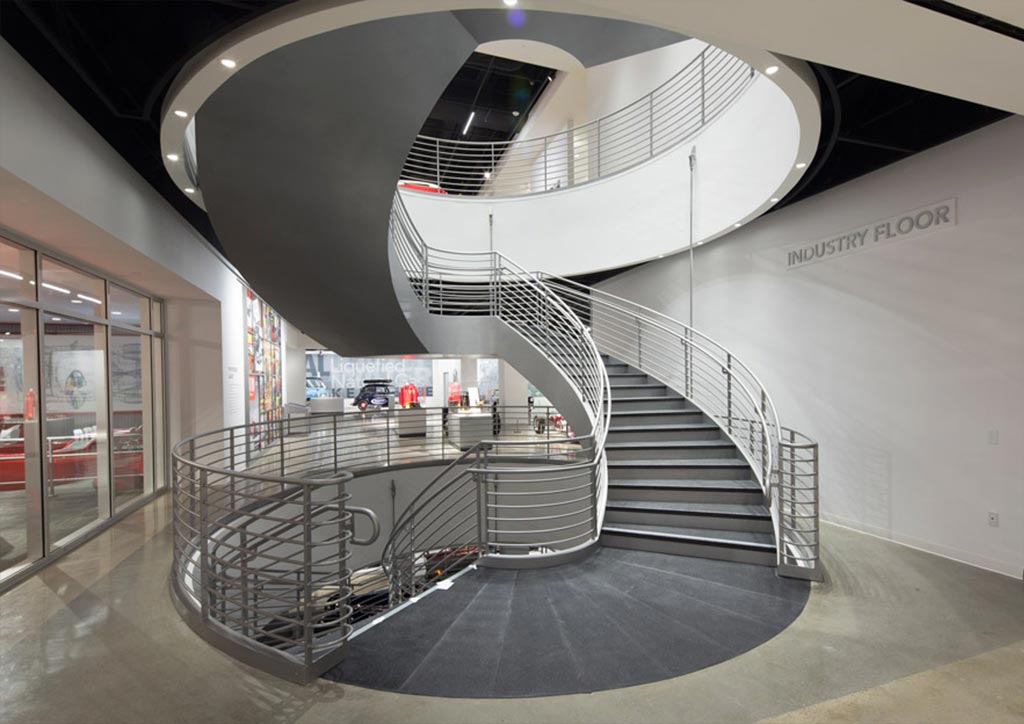
Related Article:https://bluprint-onemega.com/modern-museums/
The beginning of revitalization of the site took place in 2015 when the museum underwent a massive renovation amounting to 125 Million US Dollars. Unlike other big museums, Petersen did not have to start from scratch and demolish parts of the structure. Rather, the old building became the backbone for the new structure. Using a corrugated aluminum rain screen outboard, the museum was given a completely different look and feel – making it more enticing for passers to get curious about what’s inside the structure. Today, the museum holds state-of-the-art displays that tell the stories of historical machines and the remarkable people behind it. The museum holds a collection of a wide range of vehicles including American and European classics, hot rods, race cars, alternative fuel technology, Hollywood heritage, and vehicles built in the city of Los Angeles. Petersen’s elegance has successfully put automobiles into an artistic spotlight through its floating platforms, digital displays, and a unique play with light and music. Among the long list of reasons why every automotive enthusiasts will appreciate this museum, is the way it showcases both the past and future vision of the industry.
Some of the favorites among the long list of “supercars” in Petersen include:
1956 Jaguar XKSS
Repainted from white to green exterior, this unit was once under the ownership of American actor race car driver Steve McQueen.
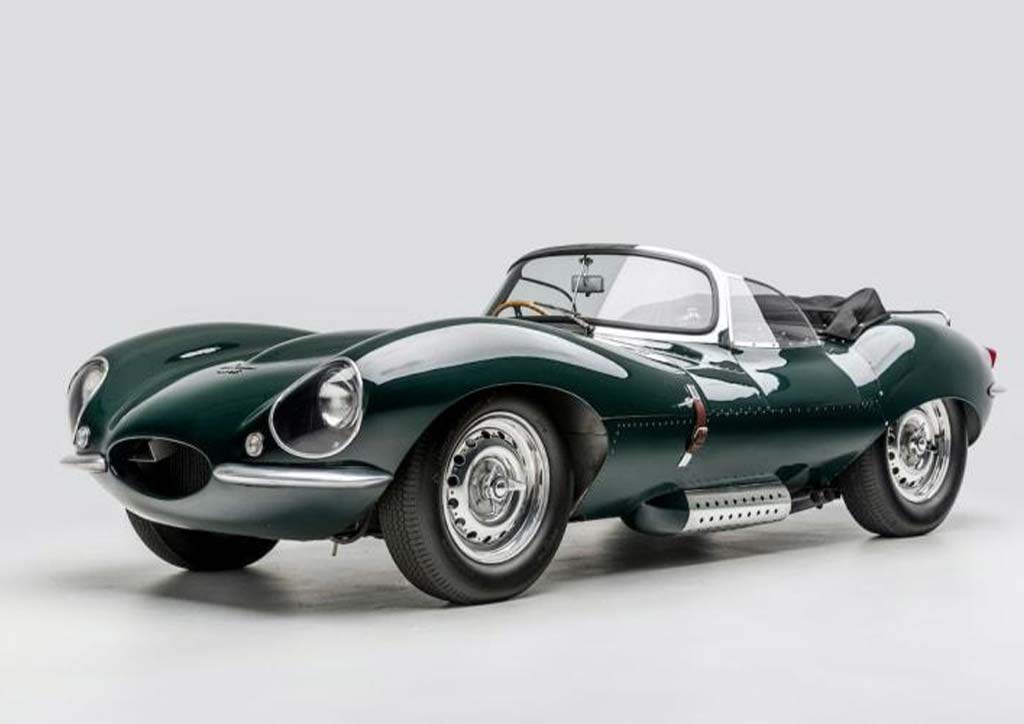
Related Article:https://www.petersen.org/
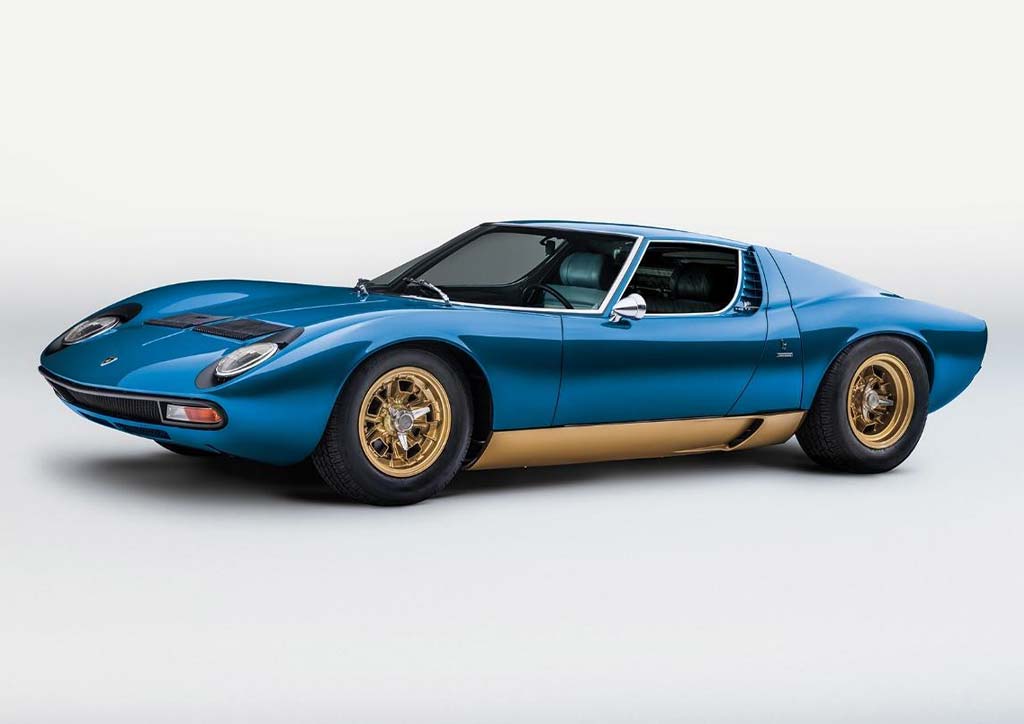
The V12-powered mide-engine Miura was definitely a head turner – when it made its official debut at the 1966 Geneva Auto Show.
Overall, the Petersen Museum serves as an inspiration for designers to not only pursue modern designs but also redesign from existing and established structures – not demolishing the old but giving life to it and making it feel new.


